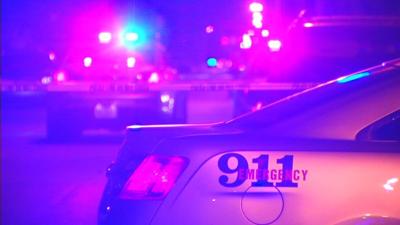LOUISVILLE, Ky. (WDRB) -- Louisville's murder rate recently earned it a distinction that the Metro's residents won't be proud of: it landed among the Top 25 list of most violent cities.
Now a U.S. attorney has made it a personal vendetta, waging a war to fight what he says are the three problems driving Louisville's crime: guns, gangs and drugs.
Russell Coleman, the U.S. Attorney for the Western District of Kentucky, says the fight against violence in Louisville requires strategy -- and must be planned on all fronts, the way you might plan a military battle against an enemy.
"There's no one in Jefferson County or this Commonwealth who is completely safe from the drug epidemic and the gangs that perpetuate much of these substances that distribute them," he said.
Coleman is on a mission to take out what he says are the three biggest factors driving violent crime -- factors that landed Louisville at No. 24 on the Major Cities Chiefs Association list of violent crime in major cities for its 2017 murder rate.
"Louisville used to be touted nationally as one of the safest in the country with the number of homicides at 40 to 50 a year -- which is unacceptable," he said. "But 40-50 a year? Our new normal for murders is over 100 a year. What's the driver behind that? Gang activity. And what provides revenue for gangs? Narcotics."

The drug problem alone is a growing crisis with opioid-related overdose deaths in Kentucky nearly double the national rate. Since President Trump appointed Russell as one of the top two federal law enforcement officials in Kentucky one year ago, he's put a battle plan into action -- just like one he once used as an FBI special agent during the Iraq War -- to clear, hold and build.
First, "clear" the area by working closely with state and local law enforcement to identify the most violent criminals and get them off the streets.
"Our goal is not to lock up numbers, our goal is to go after those who are the trigger-pullers using federal tools, those who are really driving this violence and the primary mechanism of bringing drugs into our community," he said.
That includes using tougher federal laws to keep offenders behind bars longer -- including drug traffickers.
"Our goal ultimately is to make these drugs so hard to find, or impossible to find, and the price point so high because they're so scarce that addicts and kids can't get their hands on them," he said.
Next, law enforcement and community policing help to hold the territory and keep it safe. And finally, the rebuilding. Russell feels churches, volunteers and community members can all play a role in helping to rebuild neglected neighborhoods
He says there's no time to waste with children being recruited as gang members and kids as young as 11 years old sampling drugs.
"Literally, one pill sampled by a child at a party -- looks like a known pharmaceutical substance -- could be fentanyl, 50 to 100 times more powerful than morphine," he said. "One pill and that child is dead."
There is some progress. Louisville Metro Police's uniform crime report shows violent crime, including the murder rate, dropped between the first six months of 2018, compared to the same period of 2017.
It's good news, but Russell says it's not enough.
"If you're a member of one of these organizations -- drug trafficker or member of a violent street gang -- stay tuned because we're coming for you."
He's also going after someone else. Russell wears a bracelet as a reminder of one crime that haunts him and law enforcement across the state: the murder of Bardstown police officer Jason Ellis five years ago, and the vow he made to one of Ellis' sons to help Kentucky State Police track down the killer.
"I wear this to keep front-and-center, that we're not going to forget about your dad and we're going to work this until we solve it," he said.
The initiatives here in Louisville are part of a broader Department of Justice program, Project Safe Neighborhoods. The government program to target and reduce violent crime is putting more resources into cities to hire prosecutors and create stronger partnerships between U.S. Attorneys and other state and local agencies.

Copyright 2018 by WDRB News. All rights reserved.











